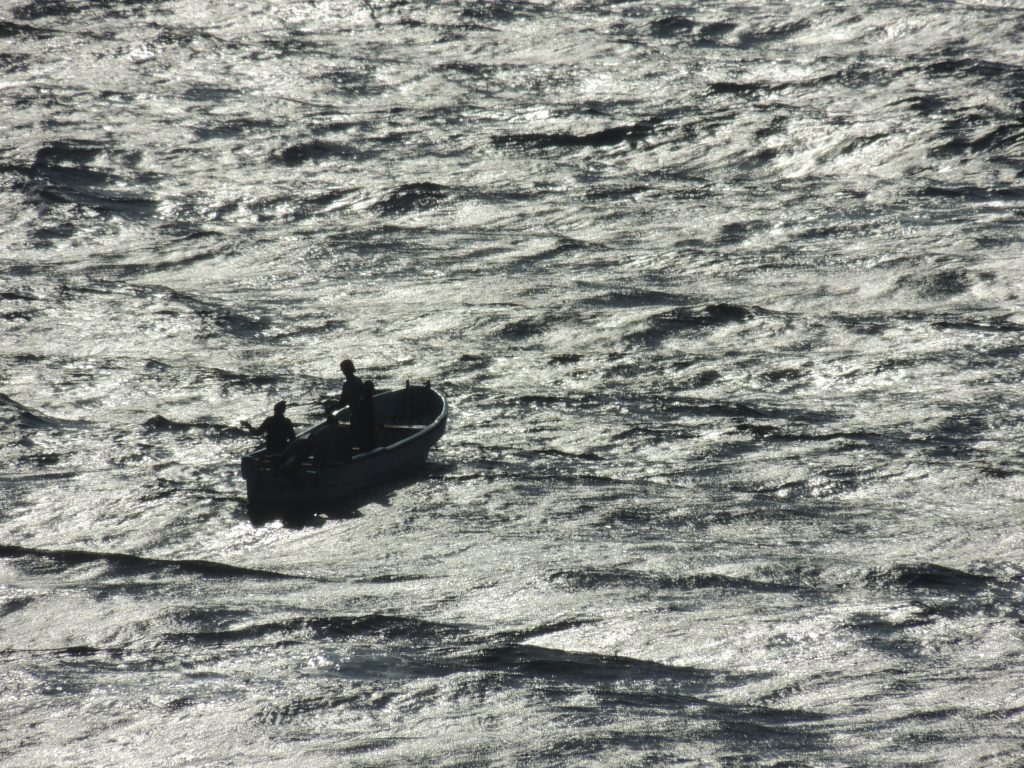There Are More and More Pirates in Caribbean Waters, Because of the Crisis in Venezuela

BY SVILEN PETROV
The economic policies implemented in the last 20 years destroyed the Venezuelan fishing industry and prompted many unemployed people from coastal towns to venture into piracy.
Piracy is not a new phenomenon in the waters of the Caribbean , nor on the Venezuelan coast. Centuries ago, attacks by criminals on ships carrying treasures or important people were common.
With the consolidation of the national states and the improvement of the security devices, the pirates went extinct . However, the Venezuelan economic and social collapse is achieving what seemed impossible: the return of this threat.
Those who suffer most are the inhabitants of Trinidad , the largest and most populated island of Trinidad and Tobago, which is attached to the northeast coast of Venezuela. Those that transit the waters of the Gulf of Paria – shared by both countries – are becoming habitual targets of the new pirates.

“There are about 50 fishermen in the town who have had friction with them, either being robbed or kidnapped, our only possibility is to fish in the dark, so they do not see us, or buy bigger engines to be able to go faster than them” , Trinidadian fisherman Gerry Padarath told an interview with the BBC . “We are all afraid of them now.”
Many of these criminals were also fishermen years ago. But the nationalization policy promoted by the governments of Hugo Chávez and Nicolás Maduro destroyed the industry .
At the closing of the companies that hired them, the economic debacle was added. Hyperinflation and widespread scarcity led some people to seek alternative means of subsistence .
They already had the boats, and the waters of the Caribbean knew them perfectly. They just lacked weapons, one of the few things that are not scarce in a Venezuela where organized crime does not stop growing.
Candy Edwards is another of the victims who spoke with the British chain. Some time ago, he was fishing in the area with two friends when he was intercepted by Venezuelan pirates.

“They got on board and tied us up, then they took us to Venezuela and locked us in a cage in some forest, they asked for a ransom of $ 35,000 to free us, the community here in Icacos (Trinidad) collected what they could and freed us after seven days, but I was so scared that I did not go back to the sea for a year, “he said.
According to a report on piracy in the world prepared by the NGO One Earth Future, 71 assaults of this type were registered in the Caribbean in 2017, most of them on the Venezuelan coast . This constitutes an increase of 163% with respect to the 27 of 2016.
In the report called “Ocean Beyond Piracy” (Oceans beyond piracy), the NGO compares this situation with what was experienced in Somalia after the civil war and famines . Groups of former fishermen and small smugglers were engaged in piracy of large freighters that passed through the Horn of Africa.
Only the intervention of the US Navy cruisers temporarily halted the actions of these filibusters of the 21st century. The situation in Venezuelan waters is not as serious as Somali . In particular, because the South Americans still do not have the powerful fast boats or the weapons that the Africans had.
But already they are equipping themselves to launch operations increasingly risky . In the last two years there have been reports of acts of piracy in Honduras, Nicaragua, Haiti and Saint Lucia. But nowhere have there been as many as on the coast of Venezuela.

The most spectacular act took place in March 2016, when a group of masked Venezuelans killed a German sailor and wounded the captain of a powerful yacht in Wallilabou Bay on the island of Saint Vincent. It is the same place in which a good part of the Pirates of the Caribbean movies series was filmed with Johnny Depp, at the head of the cast.
The famous British businessman Sir Richard Branson, who has several large yachts in Necker, his private island, also had the approach to his navy of several pirate ships in recent months. Their custodians repelled them.
Source: http://www.maritimeherald.com/
